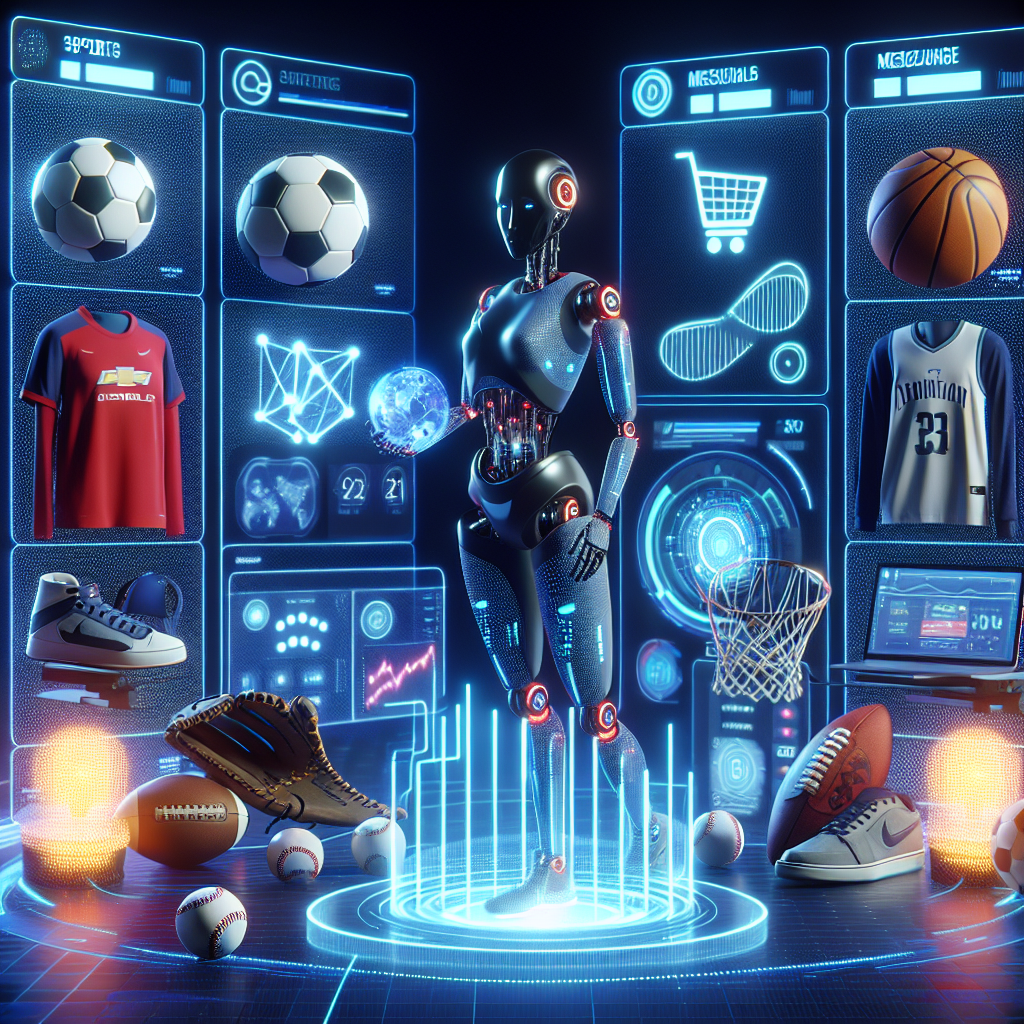The Future of AI in Sports Merchandising
Artificial intelligence (AI) is revolutionizing various industries, and sports merchandising is no exception. AI technology is being used to optimize inventory management, personalize customer experiences, and streamline operations in the sports merchandising sector. With the rapid advances in AI capabilities, the future of AI in sports merchandising looks promising.
AI in Inventory Management
One of the key areas where AI is making a significant impact in sports merchandising is inventory management. AI algorithms can analyze historical sales data, current trends, and other relevant factors to predict future demand accurately. This helps retailers optimize their inventory levels, reduce stockouts, and minimize overstocking.
AI-powered inventory management systems can also automate the replenishment process, ensuring that popular items are always in stock. This not only improves customer satisfaction but also helps retailers maximize their sales potential.
Personalization and Customer Experience
Another area where AI is transforming sports merchandising is in personalizing the customer experience. AI algorithms can analyze customer data, such as purchase history, browsing behavior, and social media interactions, to create personalized product recommendations.
By leveraging AI-powered recommendation engines, sports retailers can offer customers relevant and timely product suggestions, increasing the likelihood of a purchase. This level of personalization not only enhances the overall shopping experience but also boosts customer loyalty and retention.
AI in Marketing and Advertising
AI technology is also being used to enhance marketing and advertising efforts in sports merchandising. AI-powered algorithms can analyze customer data to identify target audiences, optimize ad campaigns, and measure campaign effectiveness.
AI can also be used to create dynamic pricing strategies based on real-time market conditions, competitor pricing, and customer demand. This allows retailers to maximize their revenue potential while offering competitive prices to customers.
AI in Operations and Supply Chain Management
AI is also being utilized to streamline operations and supply chain management in sports merchandising. AI-powered systems can automate the ordering process, track shipments, and optimize logistics routes, reducing costs and improving efficiency.
AI algorithms can also analyze data from suppliers, warehouses, and distribution centers to identify potential bottlenecks and inefficiencies in the supply chain. By addressing these issues proactively, retailers can ensure a smooth and seamless operation.
The Future of AI in Sports Merchandising
As AI technology continues to evolve, the future of AI in sports merchandising looks promising. Here are some trends and developments that we can expect to see in the near future:
1. Enhanced Personalization: AI will continue to drive personalized customer experiences in sports merchandising. Retailers will leverage AI algorithms to create hyper-targeted marketing campaigns, personalized product recommendations, and tailored promotions to engage customers on a deeper level.
2. Virtual Try-Ons: AI-powered virtual try-on technology will become more prevalent in sports merchandising. Customers will be able to see how a product looks on them virtually, helping them make more informed purchasing decisions.
3. Predictive Analytics: AI-powered predictive analytics will play a crucial role in inventory management and demand forecasting. Retailers will rely on AI algorithms to predict future trends, optimize inventory levels, and minimize stockouts and overstocking.
4. AI-Powered Chatbots: AI-powered chatbots will become more sophisticated in sports merchandising, providing customers with real-time assistance, personalized recommendations, and seamless shopping experiences.
5. Sustainability Initiatives: AI will be used to drive sustainability initiatives in sports merchandising. Retailers will leverage AI algorithms to optimize their supply chain, reduce waste, and minimize their environmental impact.
6. Seamless Integration: AI technology will be seamlessly integrated into all aspects of sports merchandising, from inventory management to marketing to customer service. Retailers will leverage AI solutions to streamline operations, enhance customer experiences, and drive revenue growth.
FAQs
1. What are the benefits of using AI in sports merchandising?
AI technology offers several benefits in sports merchandising, including optimized inventory management, personalized customer experiences, streamlined operations, and enhanced marketing and advertising efforts.
2. How can AI help retailers optimize their inventory levels?
AI algorithms can analyze historical sales data, current trends, and other relevant factors to predict future demand accurately. This helps retailers optimize their inventory levels, reduce stockouts, and minimize overstocking.
3. How can AI enhance the customer experience in sports merchandising?
AI algorithms can analyze customer data, such as purchase history, browsing behavior, and social media interactions, to create personalized product recommendations. This level of personalization enhances the overall shopping experience and boosts customer loyalty and retention.
4. What trends can we expect to see in the future of AI in sports merchandising?
Some of the trends we can expect to see in the future of AI in sports merchandising include enhanced personalization, virtual try-ons, predictive analytics, AI-powered chatbots, sustainability initiatives, and seamless integration of AI technology into all aspects of the business.
In conclusion, AI technology is transforming sports merchandising in various ways, from inventory management to customer experiences to marketing and advertising. As AI capabilities continue to evolve, the future of AI in sports merchandising looks promising, with enhanced personalization, virtual try-ons, predictive analytics, AI-powered chatbots, sustainability initiatives, and seamless integration of AI technology into all aspects of the business. Retailers that embrace AI technology will be able to stay ahead of the competition, drive revenue growth, and provide customers with exceptional shopping experiences.

